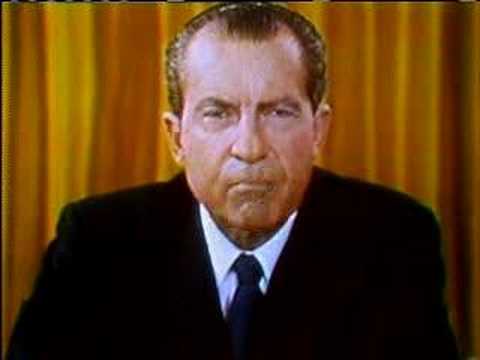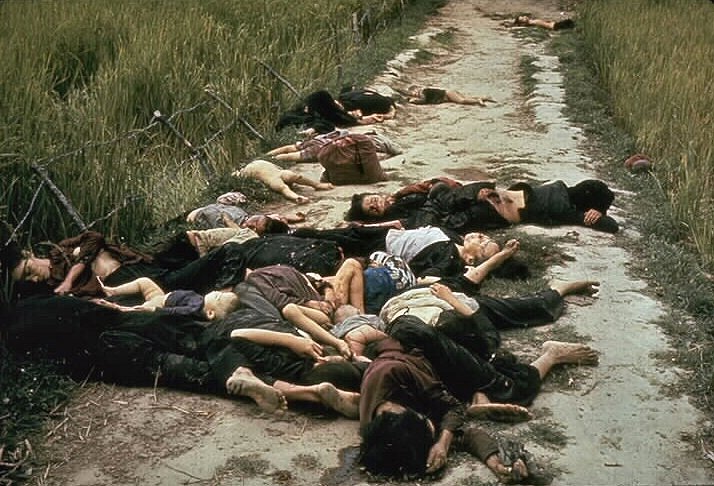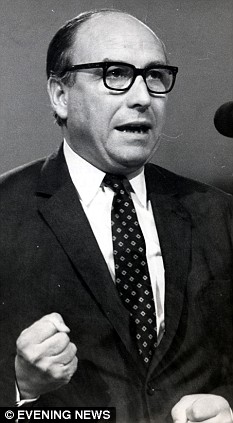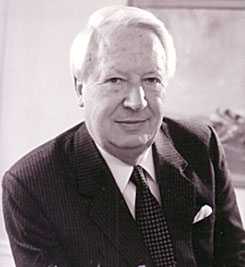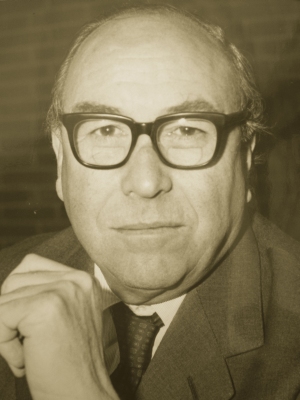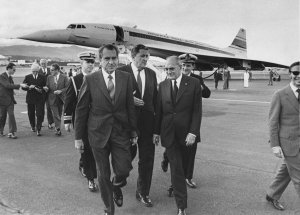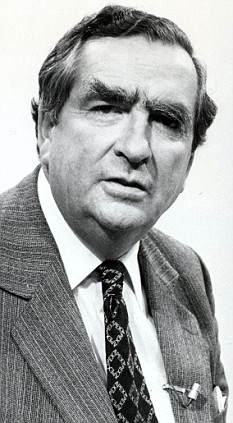"So, I hope you settled in well" said Roy Jenkins, he motioned to a fabric couch opposite the fire place smothered with a brown and red blanket and some red satin pillows adorning it. The new German Chancellor sat in the middle of the sofa and settled into it.
"Drink?" offered the Prime Minister, he moved to the drinks cabinet on the other side of the study next to his desk.
"Yes, a whisky would do me good for all the jetlag" replied Brandt. After about two minutes, Jenkins returned to the couch with two whisky glasses and handed one to Brandt who muttered a word of thanks. Seating himself in the leather armchair next to the fire and facing Brandt, Jenkins began his intended topic of discussion
"Now, Willy. Over the past few months I have made a large effort to introduce the space program to Britain and I feel that we can begin a stage of collaboration between our two nations by joining forces with a European program of space exploration, I want to rival the US and USSR."
Brandt listened to it and considered,
"How much would it cost?" he finally said, Jenkins sipped his whisky and said
"It would be around 10 billion for each nation by 1979, co-operatively the French, British, German, Finnish, Dutch, Swedish, Spanish and Italians could have a fully developed European Space Council by 1980, with room for more members. A real hallmarked achievement". The idea appealed to Brandt, not only would it help German industry and the economy, it would help heal the divides over the World War.
"Roy, I would be inclined to accept" were Brandt's words
_________________________________________________________________
Richard Nixon making his "Silent Majority" speech rallying support for the Vietnam War, 3rd November 1969
Support for the war plummets after the exposure of the My Lai Massacre by a US Army unit, exposed by journalist Seymour Hersh, 12th November 1969
_________________________________________________________________
Cabinet Secretary's Minutes
Weekly Cabinet Meeting
Tuesday 18th November 1969
Prime Minister (RJ) - Now, Ladies and Gentlemen, there are two items on the Cabinet agenda; the situation in Vietnam and the discussion about Anglo-American relations. Firstly, the Secretary of State for Defence has a briefing on the military situation in Vietnam, Denis could you please begin?
SoS for Defence (DH) - Good morning, while we have no manpower or equipment in the war itself, just our international support I can give a full briefing on the military situation of both sides. Now since President Nixon took office in January, the war has seen minor US troops withdrawals, not moving above 5,000 and negotiations with the the other side. In his speech, he appealed for the so-called silent majority to support him but levels of support for the war are falling
SoS for Home Department (BC) - No doubt due to the failure to keep his campaign promise.
DH - Undoubtedly so, Barbara
SoS for Foreign and Commonwealth Affairs (MS) - Denis, if I could also make a statement here?
DH - Of course, Michael
MS - Thank you, now I've been speaking to Rogers over at the State Department and he's given me a brief that basically stipulates that the administration want to end the war quickly but will do anything to protect their interests
DH - In concur, my briefing says that the US Army are using wholly provocative and violent measures to achieve there goals. Which must bring our question of support into view
M for OD (RP) - It is doing no end of damage to our policies in Africa and Asia, the cause of trust is being broken down.
BC - I agree, we cannot jeopardize our foreign relations for the sake of one nation
DH - It is the United States
SoS for Administrative Affairs (JC) - Surely we can compromise, review the Vietnam policy and still support their other policies
RP - I agree with Jim
RJ - Well, perhaps I shall have to raise that point with the President on his state visit in January
JC - We have to be careful Roy, election's not too far off
RJ - Don't worry Jim, I'll deal with Nixon. Now, to other business...
